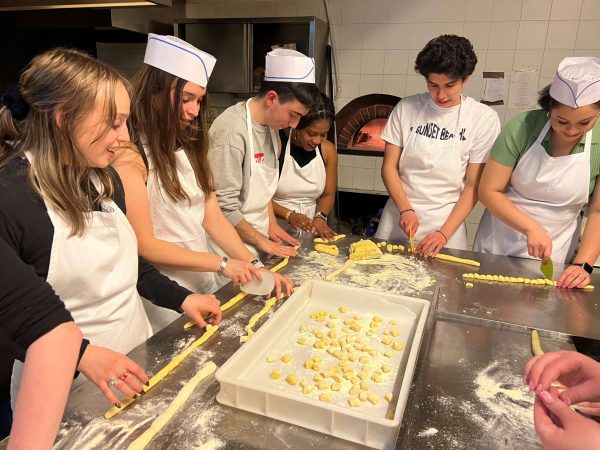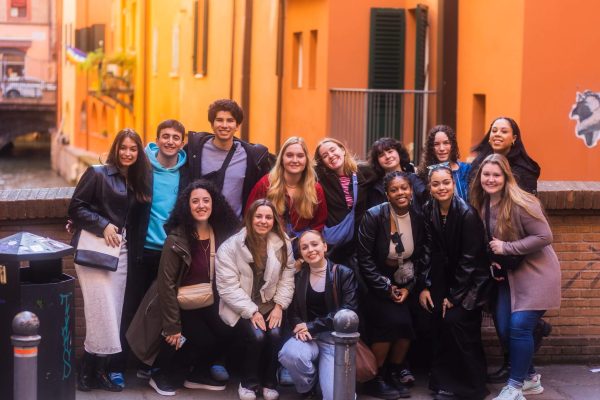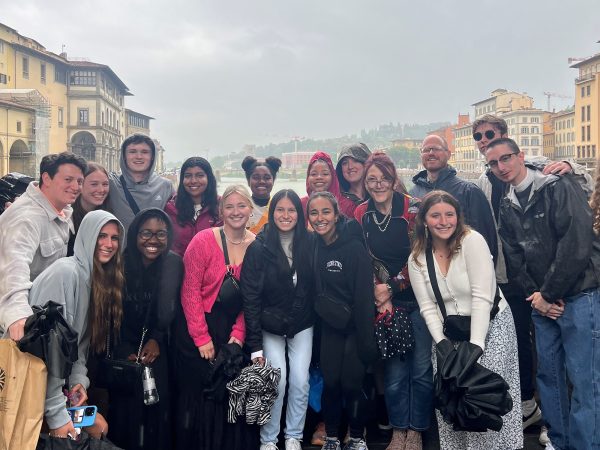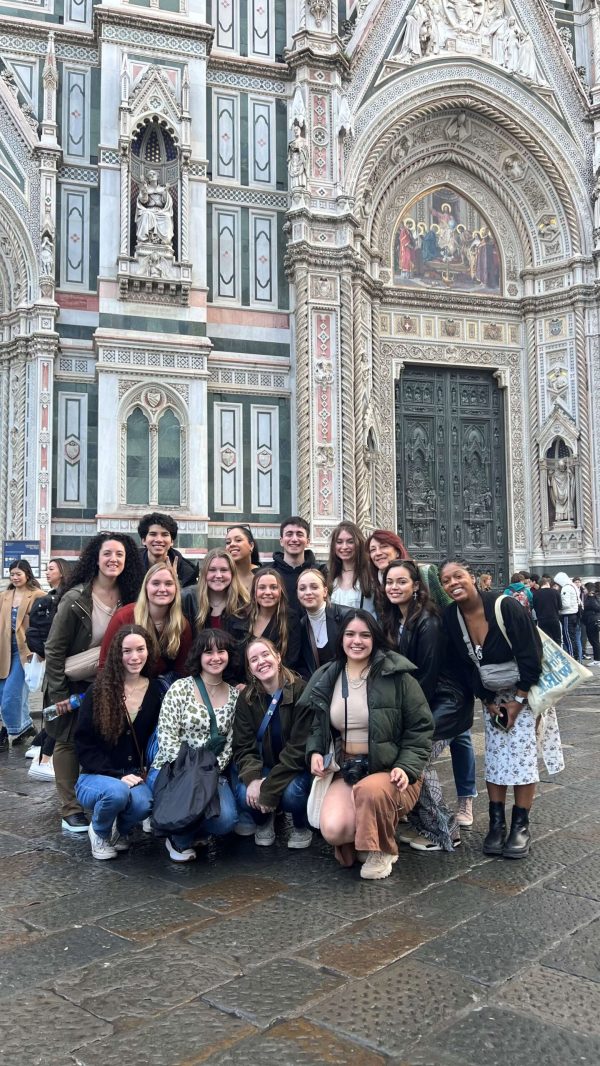Explore how language and culture intersect through humanities and social science by visiting Spain and Italy.
We will begin our travel in Bilbao in Spain’s diverse Basque region with a day trip to the beach city of San Sebastian. Next, we’ll go to the beautiful city of Prato, Italy, in the Tuscany region, where we will immerse ourselves in its many cultures. We will take day trips to Florence, Bologna, and Pienza in Italy.
The purpose of SPAN 210N, IT 210N, and PORT 210N is to teach the underlying mechanisms of multilingualism through language science principles and develop an understanding of intercultural communication through humanistic approaches.
The content of the course focuses on linguistic strategies for succeeding in multilingual environments (e.g., dialect variation, second language acquisition strategies) as well as intercultural communication practices for navigating new environments (e.g., understanding cultural norms, skills for global leadership). Students will learn how language and culture inform each other through the examination of cultures within the United States and internationally, including non-Western cultures.
Program Dates: May 10–23, 2025
NOTE: This program is now full.





This course is taught in English, has no prerequisites, is open to all majors and semester classifications, and counts toward B.A., interdomain, GH, GS, IL, US, and Other Cultures requirements.
Students must be enrolled in SPAN 210N, IT 210N, or PORT 210N for 3 credits in the Spring 2025 semester to be eligible to participate in the .25-credit summer embedded course, LANG 297 in May 2025.
If you are not taking a full-time credit load in the summer semester, the 0.25-credit summer course will be an additional cost of tuition at a flat rate of $200.
Students should also review their academic term plans to determine any financial implications, especially if you plan to take over the maximum 19 credits in a semester. Students can anticipate actual charges using the University’s updated Tuition Calculator.
- Embedded Program Fee: Maximum of $2,930.
- Airfare: A one-way flight from Spain to Italy is included in the Embedded Program Fee. However, students will need to purchase their own airfare to and from Europe with guidance from the faculty leader.
- In-Country Costs: Please consult with your faculty leader about the amount of money to bring to cover the costs of meals and any additional spending money
The Embedded Program Fee for this program includes: accommodations, some group meals, 1-way flight from Spain to Italy, transportation to/from airports in Europe for most flights, transportation and fees related to program activities in Spain and Italy, 24/7 emergency support, and administrative support.
The Embedded Program Fee for this program does NOT include: course/credit tuition, airfare to and from Europe, domestic transportation to/from the U.S. airport, most meals, spending money (souvenirs, etc.), or visa or passport fees (if applicable)
Note: The Embedded Program Fee will be billed to participants’ PSU bursar accounts in late April, and the payment is due May 22, 2025 (note this is during the trip dates). Participants will be charged the LANG 297 flat fee of $200 at the same time.
Note: This program is now full.
To be eligible, students must enroll in SPAN 210N, IT 210N, or PORT 210N for the spring 2025 semester.
Interested students may contact the faculty leader with questions: Professor Lauren Halberstadt, lyp5028@psu.edu.
There are several official avenues for embedded program funding within the University. The primary ways are through Liberal Arts Enrichment Funding and Penn State Global, but students can also explore funding opportunities through their academic department, the Student Engagement Network or Undergraduate Research and Fellowships Mentoring.
Learn more about funding for embedded programs

Previous Programs
In May 2024, Penn State students traveled to Prato, Italy, in the Multilingual and Intercultural Communication in Italy embedded program in the College of the Liberal Arts. The two-week trip abroad allowed students to explore the fundamental components of the intersection of language and culture through humanities and social science.
Get career ready!
Embedded programs help students to gain key skills that employers are most looking for in college graduates, according to the National Association of Colleges and Employers (NACE). Below are 1–2 major competencies students can start to develop by participating in this program.
Communication
Incorporate elements of your language learning into a real-world applied environment while absorbing different linguistic strategies to navigate multicultural situations.
Equity and Inclusion
Understand the linguistic aspects of multiculturalism and learn how to utilize your global perspectives/interactions for use in America’s multilingual society.
Want to hear more? Meet with a Liberal Arts career coach in the Career Enrichment Network to discuss your experience and identify even more ways that this program can enhance your personal and professional development!


